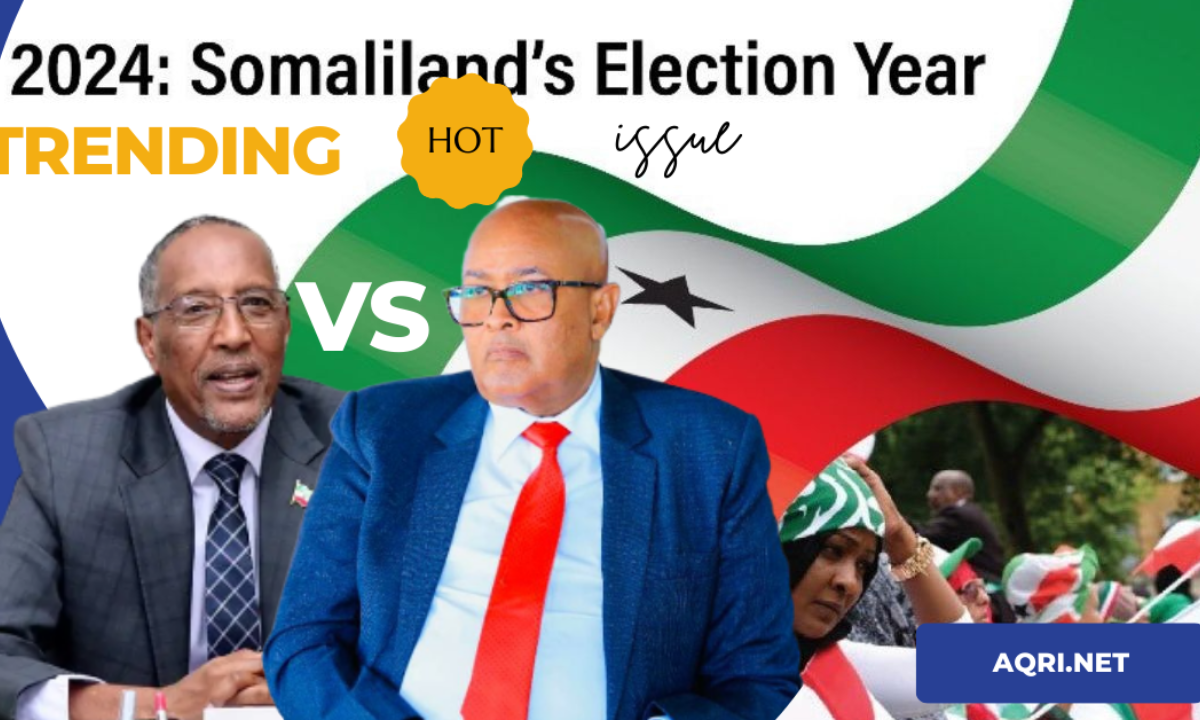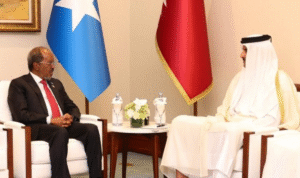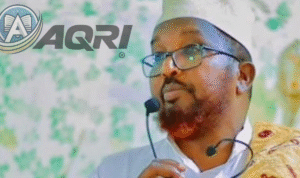Hargeisa, Somaliland (AQRI.net) — Voting is underway in Somaliland’s highly anticipated presidential election, a pivotal moment for the breakaway region. Originally delayed for two years, the election comes as the Horn of Africa faces mounting political tensions.
Local media footage shows long lines of voters at polling stations, many of whom expressed hopes for economic growth, job creation, and better local governance.
More than 1 million voters are expected to participate, casting their ballots at over 2,000 polling stations. The election is being monitored by 28 international observers, underscoring its significance for the region.
Key Candidates and Platforms
Incumbent President Muse Bihi Abdi of the ruling Kulmiye Party is seeking a second term. Bihi’s campaign has centered on pushing for Somaliland’s long-sought international recognition, which has remained elusive since the region declared independence from Somalia in 1991.
His main challenger, Abdirahman Mohamed Abdullahi of the opposition Waddani Party, has promised democratic reforms and emphasized social cohesion. Meanwhile, Faisal Ali Warabe of the Justice and Welfare Party is campaigning on a platform of national unity, advocating for a government that represents all segments of Somaliland’s society.
A Region Seeking Stability and Recognition
Since declaring independence, Somaliland has maintained its own government, currency, and security apparatus. Despite lacking formal international recognition, it has earned a reputation for political stability, setting it apart from Somalia, which continues to grapple with insecurity and political strife.
Political analyst Halima Ismail told AQRI.net, “Somaliland’s ability to hold elections and maintain stability is a testament to its governance model. However, without international recognition, its development potential remains limited.”
Regional Implications
This election is being closely watched, not just within Somaliland but across the Horn of Africa. As political tensions simmer in neighboring Somalia and Ethiopia, Somaliland’s democratic exercise offers a rare moment of political clarity in an otherwise volatile region.
Conclusion
As Somaliland’s citizens cast their votes, the stakes are high for both the region’s political future and its quest for international legitimacy. Whether the election results lead to renewed efforts for recognition or further consolidation of internal stability, the outcome will shape Somaliland’s trajectory in the years to come.








Comment